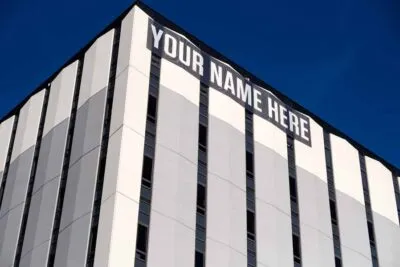- Originally Published on March 7, 2024
What to Do If You Did Porn & Now Want it Removed

Get Help Right Away.
TRANSCRIPT
Introduction
Did you participate in an adult film or modeling years ago and were shocked to find that your content is still published online? Keep watching to learn ways in which you can approach removing your adult content.
Hi, my name is Caroline Ford, and I am an attorney here at Minc Law. We represent people like you who agreed to do some explicit modeling or participate in adult content and now seek to have it removed from the internet. In this video, you will learn whether you can have adult content removed from the internet, the best strategies for obtaining removals, and whether you should seek help from an attorney to remove the content.
Understanding Your Rights and Options
Even if you consented to participating in and the subsequent publication of adult content online, you have options if you would like to have it removed. Before you start any removal process, we recommend that you conduct reverse image searches using popular search engines like Google or subscribing to facial recognition search services like PIMeyes. Be careful not to search your name too often directly on porn websites because it may cause those websites to show up in your search results even if your content isn’t actually there.
Once you have a full scope of the problem, you can start working to remove the content. If you own the copyright to the content, you can request removal pursuant to the Digital Millennium Copyright Act. DMCA notices can be effective because most websites based in the US are obligated by federal law to comply and remove the content. Therefore, websites can face legal issues if they don’t comply.
Navigating Copyright and DMCA Notices
In most cases, websites cannot be held liable for content published on their website by third-party users because of the protections that they’re given in Section 230 of the Communications Decency Act. However, those protections do not apply to claims related to intellectual property rights. Instead, the DMCA protects a website from those claims if it complies with the notice and take-down procedures in the statute and removes copyrighted content subject to proper notice from the copyright holder.
This gives websites subject to US law an additional incentive to remove content if removal is requested by the copyright holder. So it’s in your best interest to obtain the copyrights for your content if you do not already own the rights. It gives you legal rights related to the content that you can act upon in litigation if necessary.
Steps to Take if You Don’t Own the Copyright
If you don’t own the copyrights, you need to negotiate and obtain them. First, identify who owns the intellectual property rights to the content. Review any contracts, agreements, or releases you signed prior to participating in the production. If you don’t remember signing anything, you will have to track down the individual or company who filmed or financed the content.
Second, negotiate the terms of a copyright assignment with the copyright holder. You, as the purchaser, should consider factors such as how much you are willing to pay for the copyright and whether you would like the copyright assignment to be kept confidential. Third, draft the copyright assignment. Make sure all of the terms you negotiated are in writing and signed by both parties. It’s a good idea to have an attorney draft or at least review an assignment before you sign it.
Final Thoughts
Once you own the copyrights, then you can submit DMCA removal notices to websites for their removal. A DMCA notice requires specific language to be valid. You will need to include six pieces of information. Provide enough information for the website to identify your content. Include the URL in your notice and where your content is on that page. Your contact information or that of your authorized agent. Be sure you get their permission to use their contact information before submitting any removal notices. A statement attesting to your good faith belief that use of the content on the website is not authorized by the copyright owner, its agents, or by law. A statement attesting that under penalty of perjury, the information in your notice is accurate and that you have the right to submit the notice because you are the copyright owner or are authorized to act on their behalf. And six, you have to include your signature on the notice.
Once you submit the notice to the website, the individual who posted your content may be notified of your complaint. The website is obligated to remove the content unless the poster submits a counter-notice, essentially saying that they dispute your copyright claim.
At Minc Law, our attorneys have the expertise to manage the spread of your personal content. We aim to remove as much of the content directly from the websites as possible. If you have any further questions about Minc Law’s content removal services, contact us by filling out our contact form, speaking with one of our online chat representatives, or by calling this number. We look forward to helping you take back control over your personal image.
END OF TRANSCRIPT
This page has been peer-reviewed, fact-checked, and edited by qualified attorneys to ensure substantive accuracy and coverage.


